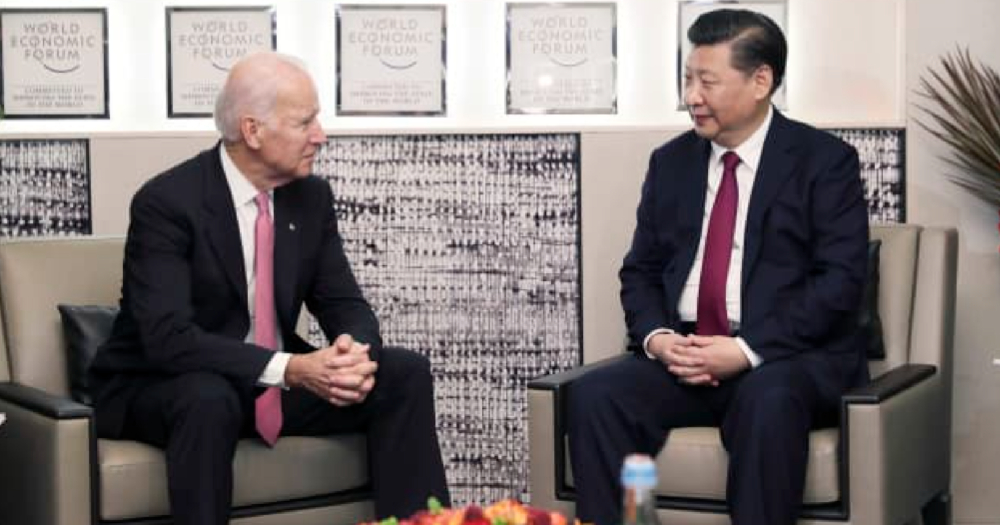U.S. President-elect Joe Biden said in an interview with the New York Times (NYT) that he will not act to roll back tariffs imposed against China immediately after taking office.
Will not be cutting back tariffs immediately
In addition, Biden will not cancel the Phase 1 agreement U.S. President Donald Trump had signed with China that requires the latter to buy more U.S. goods and services.
The deal had led to a ceasefire in the trade dispute between the two countries.
Trump had imposed 25 per cent tariffs on virtually all Chinese imports, which amount to US$550 billion (S$735 billion). China, on the other hand, has placed tariffs on US$185 billion worth of American goods.
Fixing relations with U.S. allies to deal with China
Ruling out any premature actions, Biden said: "I'm not going to prejudice my options."
His approach to China will be to first build up -- or mend -- relations with traditional allies in Asia and Europe.
This is so that they can "develop a coherent strategy" to build up more "leverage" to use in negotiations with China, he said, adding that he does not think the U.S. has leverage against China yet.
To do this, he said there needs to be a bipartisan consensus to put investments in areas such as research and development, infrastructure and education that would help American firms better compete with China.
He said: "I want to make sure we're going to fight like hell by investing in America first."
Unlike Trump, who focused on the trade deficit with China, Biden said his goal would be to pursue trade policies that "actually produce progress on China's abusive practices -- that's stealing intellectual property, dumping products, illegal subsidies to corporations".
European Union eager to mend ties with the U.S.
Elaborating on what he thinks is "the best China strategy", Biden said it is a plan that "gets every one of [the U.S.'s] -- or at least what used to be [their] -- allies on the same page".
"It's going to be a major priority for me in the opening weeks of my presidency to try to get us back on the same page with our allies," he said.
So far, the European Union (EU) appears to be on the same page as Biden, having made a proposal to work with the U.S. to counter the influence from countries like China and Russia.
The move indicates the 27 EU member states' willingness to repair relations with the U.S. that have been shaken under Trump's "America First" policy, with EU foreign policy chief saying their goal is to "make multilateralism great again".
Biden has voiced this particular China approach previously, saying "the most effective way" to deal with the challenges China impose is to "build a united front of U.S. allies and partners to confront China's abusive behaviours and human rights violations".
This strategy might present a challenge to Chinese global ambitions in the long run, which is not something that China would welcome.
Seemingly in anticipation of the incoming Biden administration, China has stepped up its diplomacy with Asian neighbours Japan and South Korea, which are also American allies.
China's inking of the world's largest trade deal that involves 15 countries in the Asia-Pacific, the Regional Comprehensive Economic Partnership (RCEP), is also seen as a potential blow against the U.S., which only has bilateral trade deals with three member countries -- South Korea, Singapore and Australia.
But if Biden were to pursue a more multilateral foreign policy like he said he would, that might not necessarily hold true for long.
Totally unrelated but follow and listen to our podcast here
Top image via Lan Hongguang/Xinhua News Agency
If you like what you read, follow us on Facebook, Instagram, Twitter and Telegram to get the latest updates.
